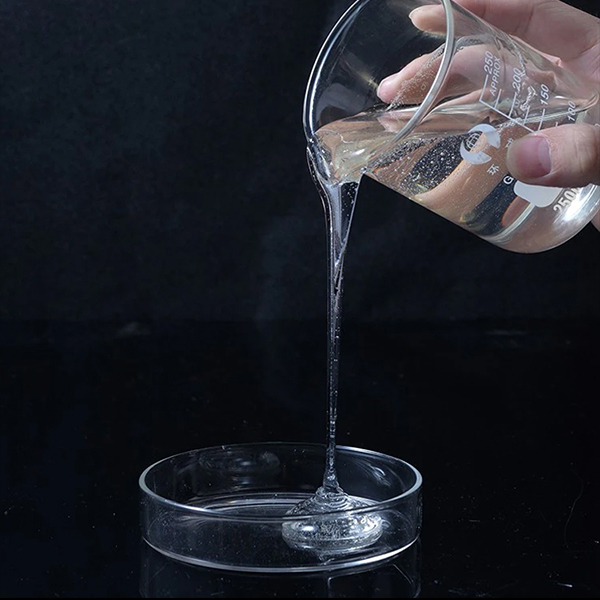Understanding Chemical HPMC Properties, Applications, and Benefits
Hydroxypropyl methylcellulose (HPMC) is a versatile chemical compound used widely in various industries, especially in pharmaceuticals, construction, food, and personal care products. This article delves into its properties, applications, and the numerous benefits it offers.
What is HPMC?
HPMC is a semi-synthetic polymer derived from cellulose, a natural polymer found in the cell walls of plants. By chemically modifying cellulose with hydroxypropyl and methyl groups, HPMC acquires unique properties that enhance its solubility and functionality in different environments. It appears as a white or off-white powder with excellent film-forming capabilities, making it ideal for various applications.
Properties of HPMC
The unique properties of HPMC contribute to its wide range of uses. Some notable characteristics are
1. Water Solubility HPMC is soluble in cold water, forming a gel-like solution that is used extensively in the pharmaceutical industry for drug formulations.
2. Thickening Agent It acts as a thickener, providing desired viscosities in solutions, which is particularly valuable in food and cosmetic formulations.
3. Film-Forming Ability HPMC can create thin, flexible films, making it useful in coating tablets and in applications where a barrier is needed.
4. Biocompatibility Being derived from natural cellulose, HPMC is generally recognized as safe and is well tolerated by the human body, which is a crucial factor in pharmaceutical applications.
5. Stability under Various Conditions HPMC retains its properties across a wide range of temperatures and pH levels, allowing it to be used in diverse environments.
Applications of HPMC
HPMC is used in various sectors due to its multifunctional characteristics. Some prominent applications include
chemical hpmc

1. Pharmaceuticals In the drug industry, HPMC is often used as a binder in tablet formulations, providing controlled release properties. It is also utilized in creating sustained-release formulations, where medication is released gradually over time.
2. Construction HPMC is an essential component in dry-mix mortar and tile adhesives, enhancing workability and water retention properties. Its ability to improve adhesion and reduce cracking makes it indispensable in the construction sector.
3. Food Industry In food applications, HPMC is used as a thickening and emulsifying agent, contributing to the texture and stability of products like sauces, dressings, and dairy items. Additionally, it is utilized in vegetarian capsules, providing an alternative to gelatin.
4. Cosmetics and Personal Care HPMC functions as a thickener and film-forming agent in creams, lotions, and gels, enhancing the sensory experience and performance of these products.
5. Agriculture In agricultural applications, HPMC can be used as a stabilizer in pesticides and fertilizers, ensuring even distribution and effectiveness.
Benefits of HPMC
The extensive use of HPMC across various sectors can be attributed to its numerous benefits, which include
1. Versatility HPMC's adaptability makes it suitable for a wide range of formulations and products, catering to diverse industry needs.
2. Safety and Non-toxicity As a biocompatible material, HPMC poses minimal risks, making it a preferred choice in pharmaceutical and food applications.
3. Enhanced Product Performance Its unique properties improve the performance of formulations, resulting in better customer satisfaction and product efficacy.
4. Cost-Effectiveness Compared to other polymers, HPMC offers a cost-efficient solution without compromising on quality and effectiveness.
Conclusion
Hydroxypropyl methylcellulose (HPMC) represents an essential component across multiple industries, offering unique properties that enhance product performance and versatility. As the demand for safe and effective formulations continues to grow, HPMC’s role in innovation and application is likely to expand further. Its contribution to the pharmaceutical, construction, food, and personal care industries underscores its significance as a valuable chemical compound in today's market. Understanding the properties and applications of HPMC is crucial for leveraging its benefits in various fields.
-
Rdp Powder: Key Considerations for Wholesalers in the Building Materials IndustryNewsJul.08,2025
-
Key Considerations for Wholesalers: Navigating the World of Hpmc - Based ProductsNewsJul.08,2025
-
Hpmc Detergent: Key Considerations for WholesalersNewsJul.08,2025
-
Key Considerations for Wholesalers: China Hpmc For Tile Adhesive, Coating Additives, Concrete Additives, and MoreNewsJul.08,2025
-
Crucial Considerations for Wholesalers: Navigating the World of Construction MaterialsNewsJul.08,2025
-
Key Considerations for Wholesalers Sourcing Additive For Cement, Additive For Concrete, Additive For Putty from Additive Manufacturer Shijiazhuang Gaocheng District Yongfeng Cellulose Co., Ltd.NewsJul.08,2025




